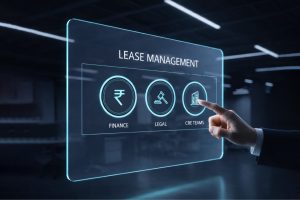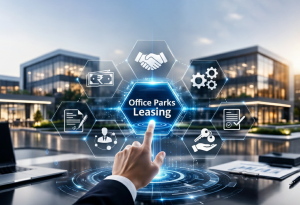Rapid expansion is every retail brand’s dream. New locations mean more visibility, increased sales, and stronger market presence. But behind the scenes, scaling from a handful of stores to over a hundred can quickly turn into a logistical challenge—especially when it comes to lease management.
Managing 100+ leases involves a complex web of contracts, renewal timelines, rent escalations, compliance requirements, and critical financial data. Without a structured system in place, even the most successful retail brands risk losing control over their portfolios, leading to missed opportunities and costly mistakes.
1. Centralize All Lease Data in One Place
Many retail brands still rely on scattered Excel sheets, email threads, and shared drives to track lease details. This fragmented approach often results in misplaced documents, version confusion, and missed deadlines.
The first step to managing a growing lease portfolio is centralizing all lease data in a single, secure platform. A lease management platform ensures that stakeholders—legal, finance, operations, and real estate access the same information in real time. It eliminates data silos and provides a clear, consolidated view of every property, lease term, and obligation.
2. Automate Key Dates and Notifications
With hundreds of leases, it’s almost impossible to manually track critical dates like lease expirations, rent escalations, or renewal windows. Missing a key deadline can lead to financial penalties, unfavorable renewals, or even losing prime retail locations.
Automated reminders and workflows in lease management software ensure that important dates never slip through the cracks. Configurable notifications can alert relevant teams well in advance, allowing enough time to evaluate options and make informed decisions. This not only reduces operational risk but also enables proactive portfolio planning.
3. Standardize Lease Processes Across Locations
High-growth retail brands often operate across multiple cities or states, each with its own regulations and real estate practices. Without standardized processes, managing leases can become chaotic and inconsistent.
Utilizing a lease management software for lease onboarding, approvals, renewals, and documentation ensures consistency and compliance across the entire portfolio. Standardization also accelerates expansion by streamlining workflows and reducing dependencies on manual oversight.
4. Enable Real-Time Reporting and Insights
For a rapidly expanding retail chain, visibility into lease performance is crucial for strategic decision-making. Real-time reporting feature in a lease management software allow teams to track rent obligations, evaluate occupancy costs, analyze performance by region, and identify underperforming assets.
Having this data at your fingertips helps leaders make faster, smarter decisions—whether it’s negotiating better terms, optimizing store footprints, or reallocating resources to more profitable locations.
5. Strengthen Collaboration Across Teams
Lease management involves multiple departments, including legal teams that review contracts, finance teams that track payments, operations teams that oversee locations, and executives who drive expansion strategy. If these teams work in silos, delays and miscommunication are inevitable.
A collaborative lease management platform connects all stakeholders in one ecosystem. Everyone works from the same source of truth, reducing back-and-forth emails and ensuring timely action.
6. Invest in the Right Technology
As retail brands scale, manual methods and legacy tools simply can’t keep up. Modern lease management software is designed to handle high-volume portfolios with precision and ease. From document storage and automated workflows to analytics dashboards, the right platform transforms lease administration from reactive to strategic.
How CRE Lease Matrix Helps?
CRE Lease Matrix, a lease management software, is built to support growing retail brands. They offer centralized control, automation, compliance tracking, and real-time insights—all in one place. By adopting the right technology, retail brands can focus on growth without worrying about operational chaos.
Managing 100+ leases may sound overwhelming, but with the right systems and strategies, high-growth retail brands can scale confidently and efficiently. Centralization, automation, standardization, and technology together form the backbone of effective lease management. In a competitive retail landscape, gaining control over your lease portfolio is a strategic advantage.
Ready to regain control of your retail lease portfolio? Book a demo now!!






